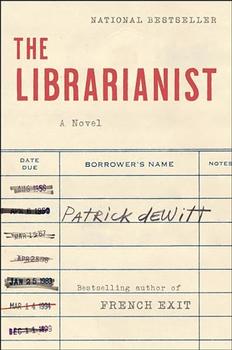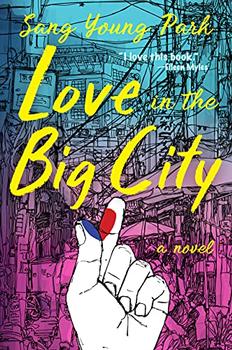Summary | Excerpt | Reading Guide | Reviews | Beyond the book | Read-Alikes | Genres & Themes | Author Bio

A Novel
by Michael DeaglerDennis Monk is sober now, and he expects some applause. Or at least some recognition that he's changed and on his way to becoming a wiser, better person than when he was drinking. Instead, his Irish Catholic boomer parents, who've gritted their teeth to do what needed to be done their whole lives (and had their own set of unhealthy habits regarding substances), kick their unemployed son out of the house. He finds no closure with his ex-girlfriend, who has moved on and is now engaged, living in a much nicer neighborhood than the one they shared. Nor does he get any sympathy from his former friends, who vacillate between wondering why he quit drinking and how long he's going to stay on their couch. Early Sobrieties recounts what it's like to rejoin the world and learn how to behave like a functioning adult again, or perhaps for the first time.
This is Michael Deagler's first novel, told in a series of vignettes, each highlighting a different dimension of getting sober. It draws heavily on Deagler's personal experience and reads like a memoir. Both Dennis Monk and Deagler grew up in Bucks County, Pennsylvania, both have aspired to write for a living, both have struggled with alcohol and sobriety. Perhaps because of this autobiographical similarity, and because I do not know Michael Deagler as a person at all, it feels a touch judgmental to admit that Monk is not a likable character. He cannot seem to understand how or why things go wrong for him when he's just trying his best to do the right thing. This may be a self-deprecating move on Deagler's part.
Each story, told from Monk's perspective, recasts his perception in a different light. Take the chapter "Kid Stuff," where he finds himself living with Tara Cudahy, a previous acquaintance and herself a recovering addict. He and Cudahy abide by a code she has tacitly set for them: pacifism, no meat in the house, alternative weeklies instead of Big Publishing, no corporate chains, no smoking. Monk willingly adopts Cudahy's requirements, ready to try on a new adult style of living that doesn't involve bad decisions. But because giving up so many vices at once is darn near impossible, and because he's still largely unemployed and broke, he causes a scene at the local grocery store trying to use a two-for-one coupon to buy some cigarettes. Afterwards, he encounters the young salesclerk on the street corner. They're headed in the same direction and she keeps glancing back nervously at him as she walks. He doesn't understand who she's looking at and wants to yell, "Yo, Pathmark girl, what are you afraid of?" Cudahy is not amused at this anecdote. How does he not see the intimidating situation for a young woman who was just harassed during her shift by the same customer who now appears to be following her? He — a tall, white, somewhat shifty-looking man — is what she is afraid of. But in Monk's world, all he's trying to do is live by Cudahy's rules, stay sober, and get home.
Despite the frequent urge to grab Monk by the shoulders and give him a good shake, his character grew on me. His various escapades earn him wisdom, insight, and move him further along in his recovery. The book begins with him at a few fragile months of sobriety, and one would be mistaken thinking this was a sort of turning point in his recovery, as if everything before the start was old/drunk Monk and everything after a happy ending. As Deagler illustrates for us, and as anyone who has ever supported themselves or a loved one through recovery can confirm, there is no narrative turning point that marks the before and after of sobriety. If there was any such moment, one could call it the day that Monk decided to get sober. But how did he know that this time it would stick? He recounts to us his past attempts at quitting drinking. On the last attempt, he ended up at the zoo after riding the bus all night and the night of no drinking somehow melted into the next day of no drinking and then the next and so on and so forth. Early Sobrieties highlights poignantly that in the battle against addiction, each day is an ongoing fight to stay away from your drug of choice and to continue the process of rebuilding your life.
Monk's adventures are set across South Philadelphia (see Beyond the Book). Within his gripes about the gentrification of certain neighborhoods is an ode to the city he knows and loves, where all his former social circle — suburban childhood and college alike — has been inevitably drawn. He tours the area as he couch-surfs through the summer, takes part in traditions like cheesesteak and the Mummers, and dreams about what his life could be like there. Deagler's debut reflects a vivid sense of South Philly as a backdrop to this intimate story and I look forward to what comes next for (and from) him.
![]() This review was originally published in The BookBrowse Review in July 2024, and has been updated for the
June 2025 edition.
Click here to go to this issue.
This review was originally published in The BookBrowse Review in July 2024, and has been updated for the
June 2025 edition.
Click here to go to this issue.

If you liked Early Sobrieties, try these:

by Patrick deWitt
Published 2024
From bestselling and award-winning author Patrick deWitt comes the story of Bob Comet, a man who has lived his life through and for literature, unaware that his own experience is a poignant and affecting narrative in itself.

by Sang Young Park
Published 2022
A funny, transporting, surprising, and poignant novel that was one of the highest-selling debuts of recent years in Korea, Love in the Big City tells the story of a young gay man searching for happiness in the lonely city of Seoul.
Your guide toexceptional books
BookBrowse seeks out and recommends the best in contemporary fiction and nonfiction—books that not only engage and entertain but also deepen our understanding of ourselves and the world around us.